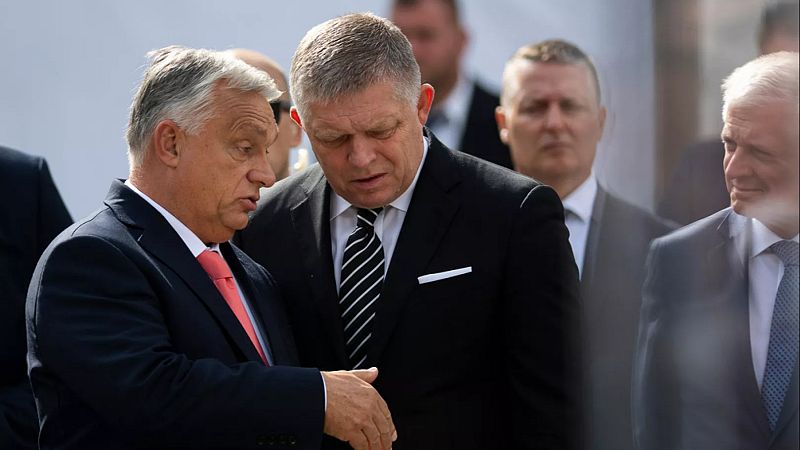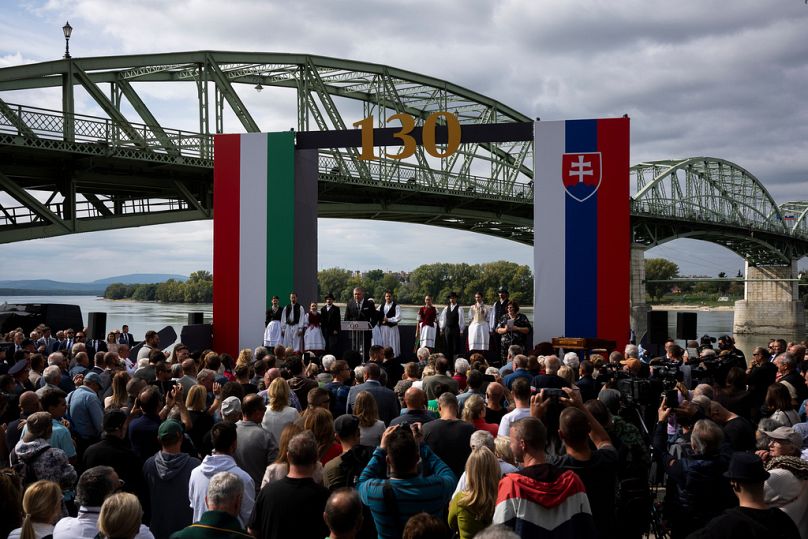Orban and Fico lambast EU at 130th anniversary of Maria Valeria bridge

Hungarian Prime Minister Viktor Orbán and Slovakian Prime Minister Robert Fico on Sunday lambasted the European Union (EU) over the bloc's plan to phase out Russian oil and gas due to Moscow's war on Ukraine.
Orban and Fico appeared together for the 130th anniversary of the construction of the Mária Valéria Bridge, connecting their two countries. The bridge links Štúrovo, Slovakia and Esztergom, Hungary across the River Danube.
The two leaders, considered outliers in the EU for their resistance to cutting ties with Moscow, lambasted the bloc in their speeches.
"No one should tell us where to buy oil and gas from,” Fico said in Esztergom, on the Hungarian side of the bridge. "Because under international law, it is a sovereign country that decides its energy mix."
"And I share the views of the prime minister of Hungary that the political ideological decision to cut off Europe entirely from the Russian oil and gas will not only harm Hungary and Slovakia the most, but will significantly damage the entire European Union,” the Slovak leader added before giving the stage to Orbán.
"Just like the old empires that ruled us, now the European Union has become a war project,” said the Hungarian prime minister.
“Now, when Brussels talks about peace in Europe, it actually means war,” Orbán added.
EU to slap tariffs on Russian oil amid Trump pressure
In response to growing pressure from US President Donald Trump to permanently sever all energy relations with Moscow, the European Commission last week announced it is developing a new plan to slap new tariffs on Russian oil that continues to enter the single market through Hungary and Slovakia.
Hungary and Slovakia remain among the only countries in Europe to continue purchasing Russian oil and natural gas following Russia’s full-scale invasion of Ukraine in February 2022.
Both prime ministers have opposed rapid moves to phase out Russian oil and gas, citing economic costs and energy security, even as most of Europe has sought to eliminate dependence on Kremlin-controlled supplies.
Budapest officials insist that geographical and infrastructural constraints make it nearly impossible to transition to using fossil fuels supplied from the West.
However, critics say that their pro-Kremlin stances run the risk of strengthening their domestic authority while weakening Europe's unified front against Russia's war in Ukraine.
Earlier this month, Trump called on all NATO countries, including Hungary, to cease purchasing Russian oil, since he believes the Russia-Ukraine war would end if they did so.
Today


